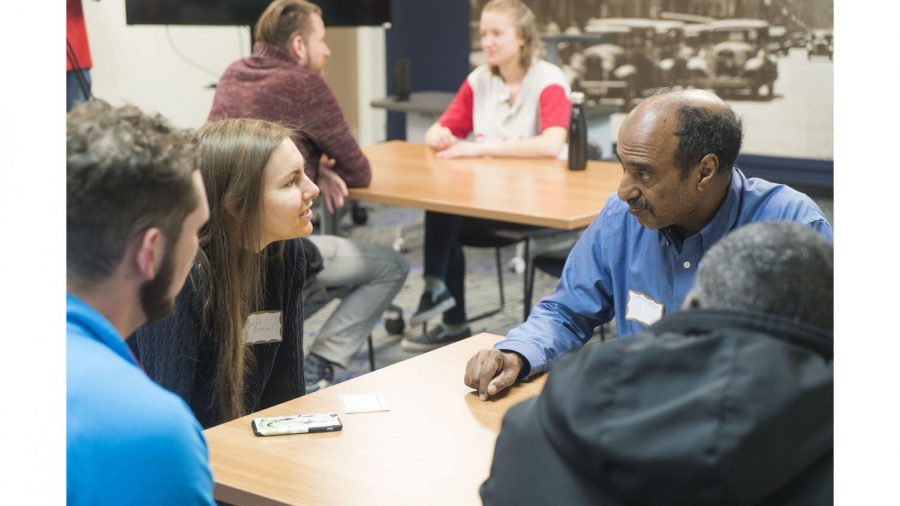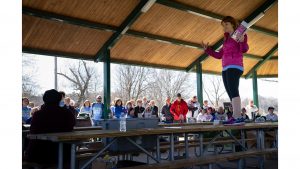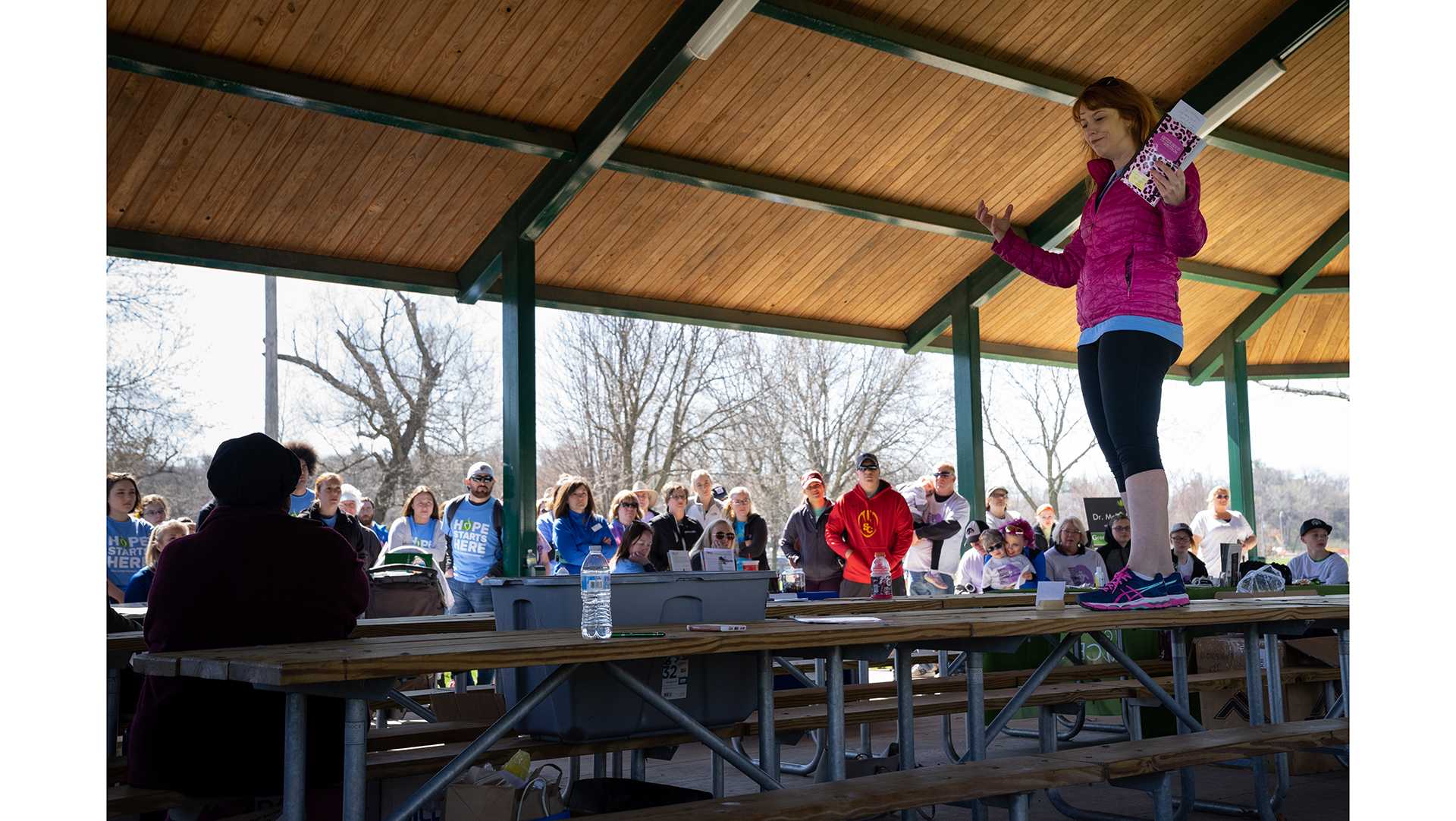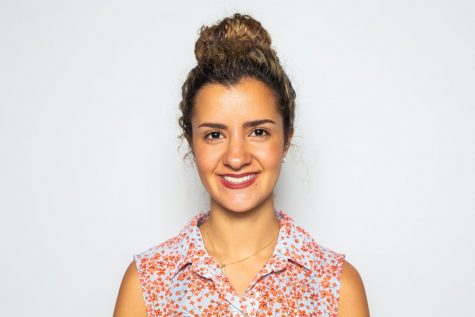Nadler: The more field work, the better set an undergraduate student
Classes that offer field experiences can give students a better idea of what it is like to enter the workforce and be in a more professional environment.
People practice their English in a community project by the UI Conversation Center at MERGE on April 3, 2018.
April 4, 2019
At the University of Iowa, many students are familiar with textbook-based classes. The common class routine of a student can consist of going to lectures, attending a weekly discussion, and receiving a test or writing a paper. However, how many classes at the University of Iowa involve actual field work? Field work being practical work conducted by a researcher in a natural environment rather than a class setting or in an office.
One example of where field experience is required at the university is the College of Education, in which education students spend a semester in the classroom. Another example is the therapeutic recreation B.S. It requires 12 semester hours of an internship. However, while these degrees require students to allocate a semester to field work, I would like to see more classes giving field work during a class, perhaps as a semester project rather than a requirement for a major.
RELATED: Community Conversations help non-native English speakers learn in relaxed environment
An example of a class that gives field-work opportunities to students is the Conversation Practicum class in the Rhetoric Department. The class allows students to work at the Conversation Center with international students for a majority of the semester as a way to bridge the gap between American students and international students. What better way to apply rhetoric skills than by actually using them?
In addition, there is a class called Social Justice, Religion, and Spirituality through the Gender, Women and Sexuality Studies Department. The class offers students the opportunity to get involved in community movements, including the Catholic Worker Movement and United Farmworkers Movement, among others.
I give these classes as examples because, as a pre-law student in the College of Liberal Arts & Sciences, I have grown the most through the field experiences I have had. The field experiences have complemented my coursework and grown my desires for graduate school. For example, I have been able to work at the UI Legal Clinic as an academic internship. The work has given me a more clear idea of what it would be like to be an attorney. What better way to learn what you want to do than to actually experience it?
RELATED: Shawnee people reclaim their history with help of research done by UI professor
Field experience allows for students to integrate their academic knowledge into actual applicable skills. In addition, the Association of American Colleges and Universities found that four out of five employers believe that community based projects or internships would be very effective in ensuring that students possess the skills needed for success at a company.
I have found that my past internships, college jobs, and now academic internship have set me up most to feel comfortable graduating and entering the workforce. I would like to see even more classes at the UI incorporate applicable experiences into their courses. While this may not be able to occur for every class, because some classes require focus on theory and conceptual learning, I believe that students can reach a higher potential from real and tangible experiences.





















